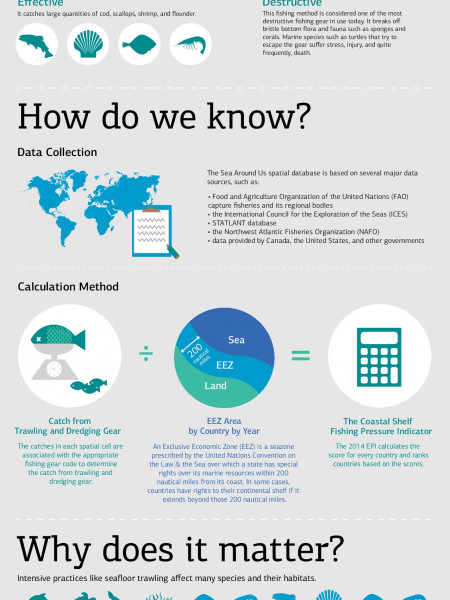
Overfishing: One Minute Crash Course
OVERFISHING | A ONE MINUTE CRASH COURSE Overfishing: to continuously catch more fish than the system can naturally produce. Worldwide about 90% of the stocks of large predatory fish stocks are already gone. Forever. That includes tasty dinner favourites like tuna and cod. In 1900 our oceans contained at least six times more fish than in 2009. Why is it happening? Mismanagement and Greed. Leading to a classic.. TRAGEDY OF THE COMMONS We have enough fishing boats for three planets. 3 (but we only have one planet) With all this we hardly catch more fish than our grandparents did in 1889. But we're trying to!i IT'S NOT JUST HIPPY MUMBOJUMBO, SCIENCE IS CLEAR ON THIS Scientists say that in 2009 it took 17 times as much effort to catch a ton of Northsea fish than a 100 years ago. Two men in a rowing boat a century ago could catch more fish than some multi-million euro fishing trawlers do today. Can we stop overfishing? Maybe. Some fish stocks will certainly follow the Dodo. Some fish stocks can be saved if we act now. How to •use This guide groups more than 60 of the most popular seafood species in Hong Kong into 3 categories: X Recommended Seafood on this list are recommended because they are caught or farmed in an ecologically friendy way, and fisheries are well managed. We can start by being selective with our dinner choice While a better choice than those in the "Avoid category, there aare stil some issues with the fishing or faming method or fisheries management. Increased demand could affect sustainability. At the same time we need better management controls K Avoid Cape Torkoro Avoid these seafood. They are over-exploited Caught or farmed in an ecologically untriendy way and fisheries are not well managed. Lolobau Buludava Heusner Baia Kimbe Island Garua / ö * Restorf Hoskins / Wulai Bialla Closed breeding areas, or Tarobi Numondo Marine Protected Areas O Kaiamu / Sulu will help to create a safe haven for the young fish. Kapiuru -- MPA Network Boundary Dagi OAreas of Interest * Coral Reefs 20 KM Is it actually that bad if the fish stocks disappear? Millions of people rely on fisheries for their employment One billion people rely on fish as a key source of daily protein (that's one in every seven humans alive on our planet) Collapsing fish stocks create large ecological dead zones in our oceans. Although fish will eventually be replaced by organisms as jellyfish and shrimp, species like whales and dolphins will diminish along with the fish. The 1992 collapse of the Northern Cod Fishery in Newfoundland, Canada is probably the best known example of a collapse. At least 40.000 people lost their job and the cod has never returned. All this was a ʻlocal' event. So yes. It is thát bad. THIS GRAPHIC, ALONG WITH ADDITIONAL RESOURCES, CAN BE FOUND AT OVERFISHING.ORG/TEACHING-MATERIALS COPYRIGHT 2006-2010 | PEPIJN KOSTER, OVERFISHING.ORG | FEEL FREE TO SEND THIS DOCUMENT TO OTHERS! SOURCES OF THE FACTS & FIGURES Overfishing.org: Overfishing basics, an introduction. Updated 12 March 2009. http://overfishing.org/pages/what_is_overfishing.php Thurstan, R.H. et al. The effects of 118 years of industrial fishing on UK bottom trawl fisheries. Nature com. 1:15 doi: 10.1038/ ncomms1013 (2010). Fisheries Topics: Research. The State of World Fisheries and Aquaculture (SOFIA). FAO. Updated 27 February 2009. http://www.fao.org/fishery/sofia. Worm, B. et al. Impocts of biodiversity loss on ocean ecosystem services. Science, 314: 787 (2006).
Overfishing: One Minute Crash Course
Source
Unknown. Add a sourceCategory
EnvironmentGet a Quote









